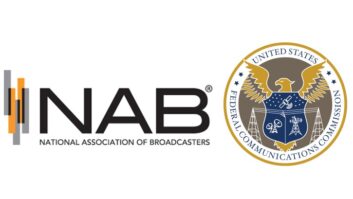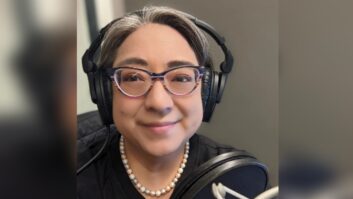The author is membership program director of the National Federation of Community Broadcasters. NFCB commentaries are featured regularly at www.radioworld.com.
When Federal Communications Commissioner Mignon Clyburn announced in April that she would leave her spot on the commission after nearly a decade, many in community media certainly felt a hint of sadness mixed in with our joy for her next adventure.
With the end of her final month in the office, Clyburn’s departure comes at a formidable moment in Washington. She counts many victories of note, and many matters yet to be decided.

As a former owner of South Carolina newspaper The Coastal Times, and the first African-American woman appointed to the FCC, Clyburn came in with many expectations placed upon her. If she was stressed about the attention, Commission Clyburn seldom showed it. Always measured and thoughtful, she was quick to take a leadership role and the needs of all Americans seriously. “It is essential for each and every American to have access to the information they need, and to have their point of view represented during the decision-making process,” she said at a 2010 presentation, just a year into her tenure.
Perhaps it was that time as a newspaper owner that gave her a deeper sense of engaging the public. A passion for public input has been a hallmark of Commissioner Clyburn’s endeavors as part of the FCC. She’s issued many statements over the years encouraging input from citizens. She’s frequently pledged her dedication to reading their letters, too. “For my part, I pledge to look at the record with an open mind, and to treat each submission with the seriousness it deserves,” she said during one open call in 2009. “I am looking forward to an honest, open, and direct exchange to make sure we get this proceeding right.”
Clyburn earned a reputation as a fierce advocate for consumers. She’s spoken at town halls, rallies and campuses around the United States, addressing the rights of everyday Americans and the FCC’s obligation to protect them, such as in fighting exorbitant rates charged to families for phone calls to incarcerated sons, daughters and parents.
[Read: Community Broadcaster: Firing Line]
In related ways, Net Neutrality and an open internet have been major themes of her tenure. For community media organizations, many of which contend with internet access issues, the cost of broadband and streaming are concerns. Clyburn voted against Net Neutrality’s repeal and still speaks out. “What the FCC did was to depress — was to strip away the freedoms of the most enabling platform, the most equalizing platform of our time,” she said at a San Francisco event after the vote.
While Net Neutrality has been a lightning rod for attention, Clyburn has been active on issues affecting radio, including Native American, Latino and African-American-run organizations.
Commissioner Clyburn has been among the great champions of minority ownership in telecommunications and broadcasting. Her 2014 remarks on these issues with former Chair Tom Wheeler reflected a clarity about the necessity of diverse voices in media. She and Wheeler wrote:
“While there is widespread agreement on the need for progress, there has been very little by way of new ideas to solve the twin problems of access and opportunity. For several years, the only path available to minority entrepreneurs required troubling financial dependency and constrained programming choices. With the Media Bureau’s approval of several transactions today, however, we see the emergence of new ownership models that will not only bring more independent voices to the station ownership ranks in a manner that promotes diversity, competition and localism.”
[Read: Attention Turns to Post-Clyburn Opening]
Years later, Clyburn has held steady to these ideals. Earlier this year, during a C-SPAN visit she raised the issue of minority ownership in the tapestry of core worries about Net Neutrality. The specter of media consolidation limiting choice and undercutting localism are among the reasons many activists have expressed fears about the end of Net Neutrality. Clyburn was clear about the FCC’s role in such matters.
“People want action. They want results. They want decisions made as quickly as possible. And what agency is the best to do so?” she asked. “I think if you answer that question objectively, the buck needs to stop at the FCC.”
While who will be Clyburn’s replacement remains a subject of some currency, community radio leaders can only hope for and seek someone concerned about the interests of rural America, communities of color and all Americans the way the brilliant outgoing commissioner has been. She’ll be missed.







